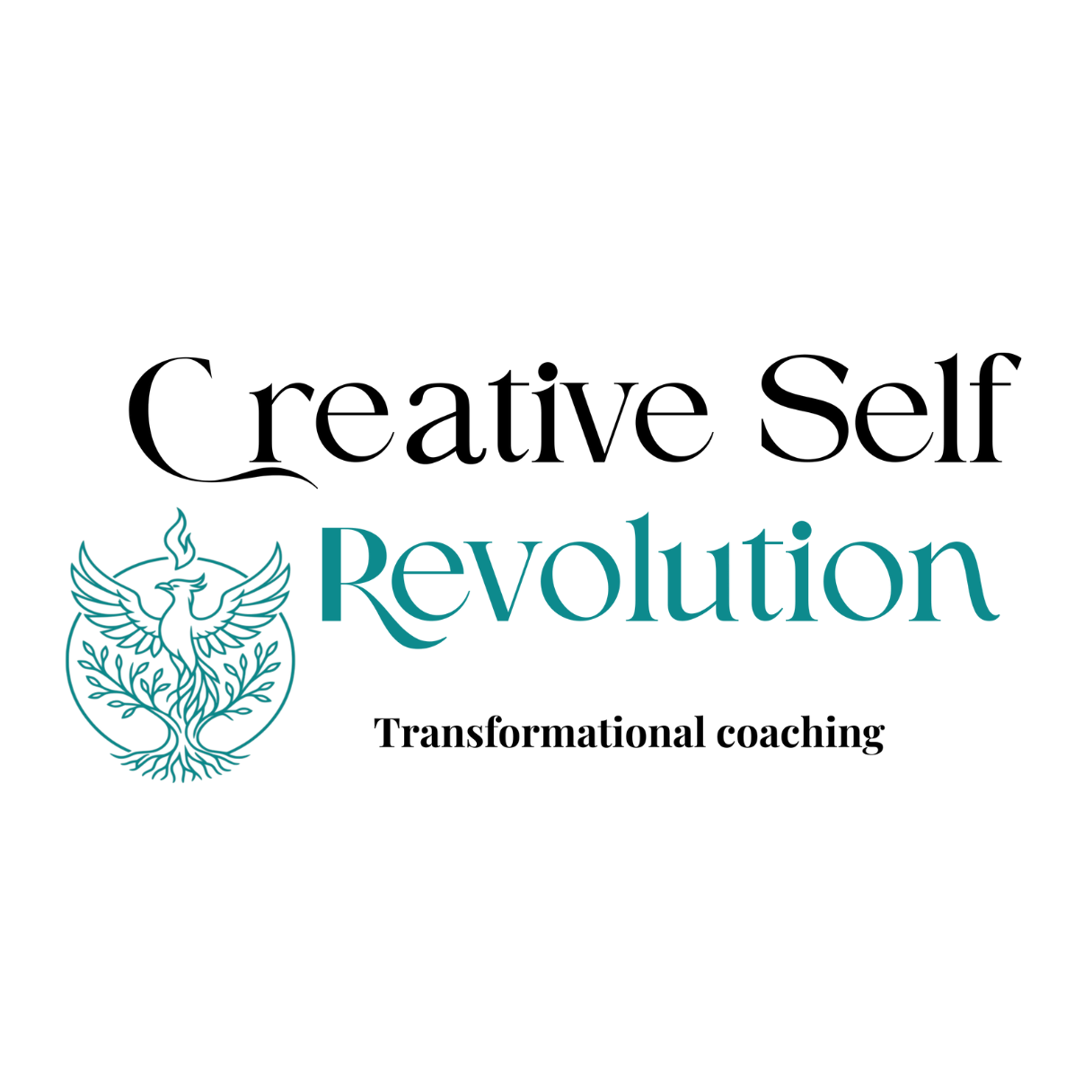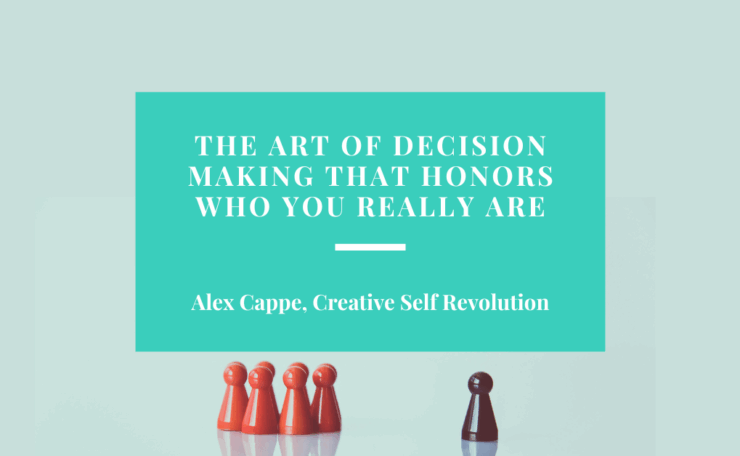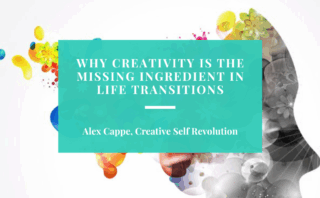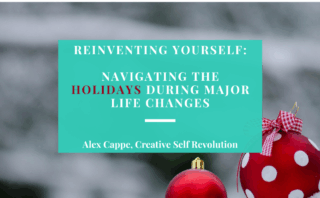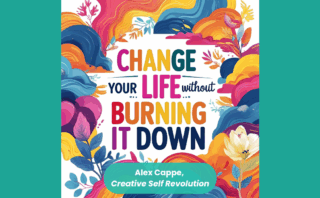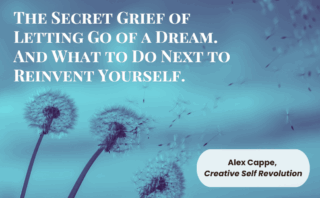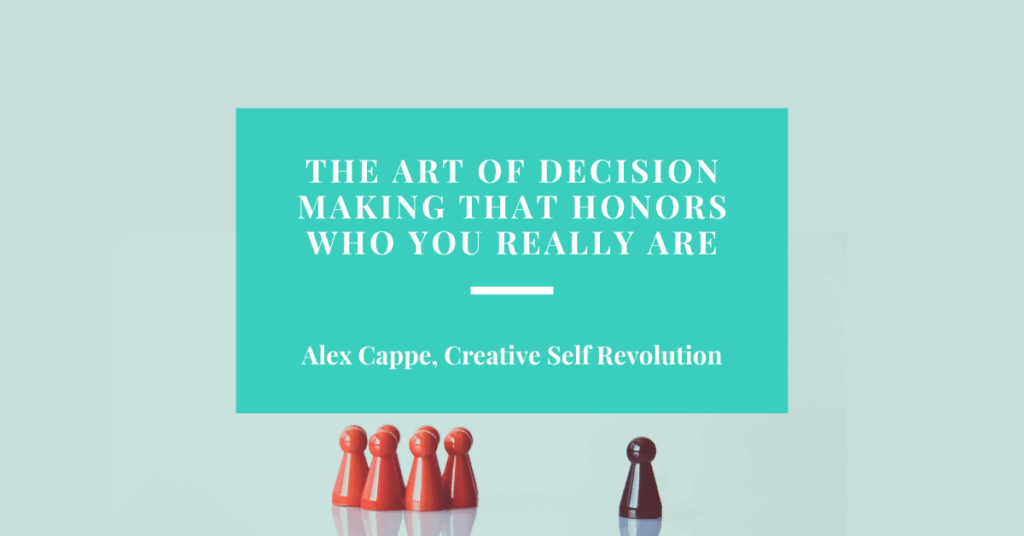
“No one else lives with your choices as much as you do, so make them ones that build the life you actually want.”
Picture this: You’re sitting across from someone whose opinion you deeply respect, and they’re giving you advice about a decision you’re facing. Their logic is sound, their concern is genuine, and everything they’re saying makes perfect sense on paper. But something in your chest feels tight, like you can’t really breathe.
You nod along anyway. You thank them for their wisdom. And then you go home feeling more confused than when you started.
If this scenario feels familiar, you’re caught in one of the most challenging aspects of adult life: learning decision making that honors who you are and what you want, even when the people you love don’t quite understand what you’re doing.
This isn’t about becoming reckless or dismissive of good advice. It’s about developing the skill to distinguish between decisions that look right and decisions that feel right. It’s about trusting yourself enough to choose your own path, even when it doesn’t come with a manual or a guarantee.
Most of us were never taught effective decision making. We learned to make choices that kept the peace, checked the right boxes, or earned approval. But somewhere along the way, those decisions started to feel…off. This blog will show you how to make decisions you actually trust, and why getting the right support can make all the difference.
Why Making Aligned Decisions Feels So Difficult (and How to Break Free)
Here’s what people don’t mention regarding making choices that truly serve you: your brain is wired to keep you socially connected and physically safe, which often means it’s wired to keep you stuck.
The voices in your head aren’t just from people you know. Sure, there’s your parent’s concern about financial security and your teacher’s warning about taking risks. But there’s also the cultural programming that whispers you should climb the ladder, buy the house, follow the timeline everyone else follows. There’s the societal pressure that says certain dreams are “realistic” and others are “just hobbies”.
These messages run so deep we can easily mistake them for our own thoughts. The promotion that sounds impressive but leaves you feeling empty? That’s conditioning talking. The life path that checks all the boxes but doesn’t make your heart happy? Same thing.
Unfortunately we live in a culture that values external metrics over internal satisfaction. Success is measured by salary figures, square footage, and social media followers. But effective decision making requires you to define success for yourself, which can feel revolutionary in a world that profits from your dissatisfaction.
Fear masquerades as practicality. Your nervous system can’t distinguish between actual danger and social disapproval. So when you consider decision making that might disappoint others or go against societal expectations, your body can respond as if you’re facing a physical threat. That tight feeling in your chest when you think about changing careers? Your nervous system thinks you’re about to be cast out from the tribe.
Analysis paralysis becomes a protection mechanism. When the stakes feel high, your mind tries to think its way to certainty. But here’s the thing: no amount of pros-and-cons lists can tell you how a decision will feel in your bones. Overthinking becomes a way to avoid the vulnerability of choosing without guarantees.
This is where professional support becomes invaluable. A life reinvention coach like myself can help you see the patterns you’re too close to notice, the places where cultural programming and fear have been making your choices for you. Working with a coach can help you integrate your rational mind with your deeper wisdom about what serves the life you most want.
The Hidden Costs of Outsourcing Your Decision Making
The price of decision making based on external expectations isn’t always immediately obvious. It’s rarely dramatic – no one wakes up one day and suddenly realizes they’ve been living the wrong life. Instead, it’s more like a slow leak in your soul that you don’t notice until the damage is significant.
The emotional tax compounds over time. When you consistently make choices based on others’ expectations rather than what feels right to you, resentment builds like sediment in a river. You might feel frustrated with the people whose approval you’ve been seeking, but really, you’re frustrated with yourself for giving away your power.
Your opportunity radar gets fuzzy. When you’re focused on making choices that keep everyone comfortable, you can develop tunnel vision. You stop seeing possibilities that don’t fit the approved path. The creative project that keeps calling to you gets dismissed as “unrealistic”. The city that makes your heart sing becomes “too impractical to consider”.
Poor decision making doesn’t just limit your current choices – it trains you to not see certain options at all. You become skilled at talking yourself out of possibilities before you even fully consider them.
Your sense of self might erode gradually. When you make decision after decision based on external validation, you lose touch with your own preferences, desires, and instincts. You become a stranger to yourself, operating from a script written by an outside committee rather than from your own core values.
You lose your decision making muscle. Like any skill, decision making gets stronger with practice and weaker with neglect. When you consistently defer to others or default to the “safe” choice, eventually you can lose confidence in your ability to make good decisions. This creates a vicious cycle where you feel less capable of independent decision making, so you rely even more on external validation.
The beautiful thing about recognizing these costs is that it often sparks the desire to choose differently. Your dissatisfaction isn’t a character flaw, it’s your gut telling you it’s time for a different approach to decision making.
A Proven 3-Steps Process to Make Choices You Can Trust
Instead of drowning in endless advice and analysis, here are 3 clear steps that will transform how you approach any important choice:
Step 1: Find the Spark – What Lights You Up Right Now?
Before you can make decisions that serve you, you need to know what you’re serving. This sounds obvious, but it’s surprisingly difficult when you’ve been focused on everyone else’s priorities for years.
Most people approach decision making by trying to figure out what they “should” want based on their age, role, location, or circumstances. But effective decision making starts with understanding what you actually want, right now, in this season of your life.
THE ONE THING TO DO: Write down your top three priorities for this season of your life. Not forever, not for the person you think you should be, but for who you are right now. Maybe it’s creative expression. Maybe it’s financial growth. Maybe it’s meaningful connections. Maybe it’s adventure. There’s no right answer, only your answer.
Ask yourself: What would I pursue if I had abundant time, energy, and resources? This question reveals what you truly want to expand toward, rather than what you think you should settle for. It bypasses the practical limitations that often constrain our thinking and helps you identify what really matters to you.
Don’t worry about whether these priorities make sense to anyone else or whether they’re “realistic”. The goal here is clarity, not approval. You can figure out how to honor these priorities later. First, you need to know what they are.
This is where having support becomes particularly powerful. Working with a coach who specializes in life transitions helps you excavate your true priorities from beneath the layers of conditioning and expectation, ask the questions you might not think to ask yourself, and hold space for answers that might surprise you.
Step 2: Learn to Distinguish Fear from Intuition
One of the most crucial skills in decision making is learning to tell the difference between the voice of fear and the voice of intuition. They can sound incredibly similar, especially when you’re facing an important choice, but they lead to very different outcomes.
Fear tends to be urgent and dramatic. It speaks in absolutes: “You’ll fail,” “Everyone will think you’re crazy,” “You’ll regret this forever.” Fear is the voice that needs you to decide right now, that can’t tolerate uncertainty, that presents worst-case scenarios as inevitable outcomes. Fear-based decision making feels frantic and pressured.
Fear often disguises itself as being “realistic” or “practical”. It will present logical arguments for why you shouldn’t take risks, why you should stick with what you know, why you should prioritize security over growth and satisfaction.
Intuition is quieter but more persistent. It might say, “Something about this feels right,” or “I keep coming back to this idea,” or simply, “Yes”. Intuition doesn’t usually come with detailed explanations or logical arguments. It emerges from a deeper place of knowing what serves your life in the long run.
Intuition-based decision making feels calm, even when the choice itself feels challenging. It acknowledges risks without being paralyzed by them. It considers consequences without catastrophizing. It trusts your ability to adapt and learn as you go.
THE ONE THING TO DO: When you’re facing a decision, pause and take three deep breaths. Then write down your first, unedited response to the question: “What feels most right to me right now?” Don’t explain it, don’t justify it, don’t make it sound reasonable. Just notice what arises before your rational mind starts editing.
Pay attention to your body’s response to different options. Fear often creates tension such as tight shoulders, shallow breathing or a clenched jaw. Intuition usually brings a sense of expansion or relief, even if the choice feels challenging. Your body is constantly giving you information about your decisions; you just need to tune into it. When you do, its signals will get even stronger and more apparent.
Step 3: Test Your Decisions with Small, Low-Risk Experiments
Most decisions don’t need to be permanent, irreversible commitments. Sometimes the most powerful choice is to experiment with something small and see how it feels before making the bigger leap.
THE ONE THING TO DO: Ask yourself: What’s a micro-version of this decision I could try in the next two weeks? Considering a career change? Start with one informational interview or weekend workshop in the field that interests you. Thinking about moving to a new city? Plan a long weekend visit to get a feel for the place. Wondering if you want more creative expression in your life? Commit to one small creative project and see how it affects your energy. Creative projects can also help you tune into yourself and your intuition.
The key is making the experiment small enough that it doesn’t trigger your resistance, but big enough that you learn something meaningful. You want to test your hypothesis about what you want without the pressure of permanent commitment.
These experiments give you real data about how choices feel in practice, not just in theory. They also build your confidence in your own decision making abilities. Each successful experiment increases your trust in your ability to navigate uncertainty. Even unsuccessful experiments that you learn from can increase your confidence if you come at them from a place of genuine curiosity.
The right support can help you design these decision making experiments strategically, ensuring they give you meaningful data rather than just keeping you busy. I’ve helped clients design small experiments that are like bites of what the full meal could be. You’re not committing to the choice, you’re simply giving it a shot.
What to Expect When You Start Making Different Choices
Here’s the truth no one prepares you for: when you start making decisions based on what feels right to you rather than others’ expectations, some people won’t understand. Not only is that ok, it’s actually a part of the process.
When you change your approach to decision making, the people around you need time to adjust. They’ve gotten used to a certain version of you, and when you start making different choices, it can feel threatening to them. OR it can inspire them.
You’ll question yourself sometimes, maybe a lot. This is normal and doesn’t mean you’re making the wrong choice. It means you’re developing a new skill, and like any new skill, it takes time to feel natural. The key is learning to distinguish between productive self-reflection and self-sabotaging doubt.
Your decision making will improve with practice. The more you practice making choices based on what feels right to you, the easier it becomes to distinguish between fear and intuition, between external pressure and internal knowing.
This is another area where having the objective perspective of a life coach becomes incredibly helpful. When you’re navigating pushback from important people in your life, having a neutral, supportive voice can help you stay connected to your truth instead of getting swept back into old patterns of people-pleasing.
The Daily Practice That Transforms Your Decision Making
Here’s what successful decision makers do differently: they practice tuning into what feels right on small decisions so they can trust it on big ones.
THE ONE THING TO DO: Start asking yourself throughout the day: “What do I actually want right now?” Not what you should want, not what would be practical, not what your partner or friends want, but what you genuinely want. Which route home appeals to you? What sounds good for lunch? How do you want to spend your evening?
These small moments of honoring your preferences build your capacity for bigger decisions. Each time you choose something based on what feels right to you and survive the experience, you show your nervous system it’s actually ok and increase your confidence for your next choice.
Start noticing the quality of different decisions throughout your day. How do you feel after making choices that honor what you want versus choices that ignore it? This awareness helps you understand the real world consequences of different approaches to decision making.
How Support From a Life Coach Accelerates Your Progress
While everyone can develop better decision making skills on their own, there are times when coaching support can accelerate your progress significantly:
- When you’re caught in analysis paralysis, going in circles without moving forward
- When every option feels equally overwhelming or equally wrong
- When you’re facing a major life transition and need support navigating the complexity
Working with someone who works in life reinvention brings several unique advantages to your process. Someone like me can help you see patterns you’re too close to notice, ask the right questions, and provide a neutral space to explore options without judgment.
Perhaps most importantly, compassionate coaching guidance helps you develop trust in your own wisdom. Many people know what they want deep down but have learned to dismiss their preferences. The right support can help you distinguish between genuine desires and passing whims, between intuition-based guidance and fear-based reactions.
Your Life, Your Rules: An Invitation to Start Choosing What Truly Fits You
If you’ve read this far, something in you is ready to start approaching decision making differently. Maybe you can’t name it yet, but you feel it – that quiet knowing that you’re capable of choices that truly serve who you are becoming. You’re ready to shed the past and become who you were always meant to be.
The beautiful thing about improving in decision making is that it’s a practice, not a destination. You don’t need to overhaul your entire life overnight. You just need to start with one choice, one moment of choosing what feels right over what looks right to everyone else.
Begin where you have the most curiosity, not where you think you “should” start. And remember that your choices ripple outward in ways you can’t always see. When you start making decisions that honor who you really are, you give others permission to do the same.
The world needs more people who are awake and making conscious choices, and creating lives that light them up, not more people just going through the motions. Every time you choose what serves your life over what serves someone else’s expectations, you contribute to a culture that values genuine expression over conformity.
Your Next Aligned Choice: Where Will You Begin?
Here’s your invitation: What’s one area of your life where you’ve been making decisions based on what looks good rather than what feels right? What would happen if you approached that area with curiosity instead of pressure?
You don’t need a perfect plan. You don’t need to know how it will all turn out. You just need to be willing to start honoring your own intuition in your decision making process, one choice at a time.
The life you’re meant to live isn’t waiting for you to become a different person. It’s waiting for you to trust the person you already are underneath all the conditioning and expectations. Your conscious choices are the bridge between who you’ve been and who you’re becoming.
What will your first conscious choice be?
Ready to Discover What’s Next?
If you’re feeling ready to take the next step in your personal transformation, explore who you are and what you want now, I’d love to support you with a complimentary Life Reinvention Strategy Call.
In this session, we’ll work together to:
- Uncover and connect to what truly drives you now (it may be different than before)
- Create a vision for your future that actually energizes you
- Start building a map for your path forward with intention and momentum
Limited spots available. Schedule your free call here
Alex Cappe, founder of Creative Self Revolution, specializes in guiding clients through the life-changing process of personal transformation. Many people know what they want to escape from, but struggle with what they truly want to create. In her coaching practice, she provides the structured process, creative exercises and a compassionate, objective perspective to distinguish between your core identity and the adaptive patterns that no longer serve you as you reinvent yourself and change your life. If you’re ready to move from reactive change to intentional evolution, book a complimentary life reinvention session today. We’ll begin the work of building a bridge from your past experiences to the fulfilling future you want to create!
